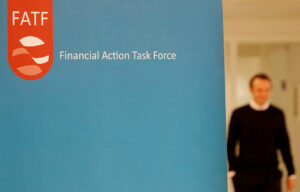The title of this piece is bland. The reader might even get the impression that the column will be an instance of moralizing. If so, it would be moralizing against morality as the overarching framework to find the appropriate solutions to the world’s (or the country’s) knottiest problems.
The title I prefer is “Morality is the enemy of peace.” Very provocative. It would have agitated many readers regardless of their religion, ideology, or politics. But I would have been a plagiarist if I used that as my title. “Morality is the enemy of peace” is the title of Stephen Walt’s essay that Foreign Policy (FP) published on June 13.
Mr. Walt is a Professor of International Affairs at the Harvard Kennedy School. His insights into geo-political or political affairs take a realist viewpoint. A slogan that I like best to describe realism is Deng Xiaoping’s: “It doesn’t matter whether a cat is black or white so long as it catches mice.” Deng’s slogan subdues principle or morality (i.e., ever-correct socialism) in favor of what works best for society. My interpretation of Deng’s statement: A ruler or policymaker has a menu of instruments and strategies that are blind to an ideology, doctrine, or “ism,” and he chooses the most suitable and most responsive to attain his objective.
Deng’s pragmatism rejected a zero-sum game in connection with China’s competition with the US. Before the US employed a strategy of crippling and demonizing China during the terms of Donald Trump and Joe Biden, economic competition was mainly defined through cooperation.
China demonstrated goodwill by joining the World Trade Organization and other multilateral bodies. China was able to use the gains from trade and globalization to lift hundreds of millions from poverty. The US likewise reaped gains from trade, but the distribution of gains was sharply uneven, leading to a backlash that is now called “deglobalization.”
China managed well the tradeoffs found in hyper-globalization— the tension between rapid globalization and exercise of national sovereignty, the tension between globalization and mass politics, and the tension between the central state that wields national sovereignty and democratic politics.
On the current geopolitical rivalry, Walt’s realism tells him that placing morality front-and-center in resolving complex contradictions leads to worse outcomes.
Prof. Walt demonstrates his point by showing how the resort to moral arguments in the armed conflicts in Gaza and Ukraine has only prolonged and intensified the violence. In truth, the opposing parties have valid moral claims. Palestine has the right to resist an occupying force and an apartheid system. Israel has the right to secure its people from terrorism. Ukraine has the right to defend its territorial sovereignty. Russia understandably insists that it has the right to eliminate the existential threat of having the nuclear-armed NATO (North Atlantic Treaty Organization) deployed near its border.
In this context, a “good versus evil” framing does not alter the reality that the warring sides have sensible claims and interests that are better resolved through diplomacy and negotiations.
To quote Prof. Walt, a conflict framed in moral terms “makes it harder to reach a peace settlement, because anything short of total victory inevitably invites a powerful backlash from critics fearing that these critical values are being sacrificed.”
A heavy dose of realism is thus needed to make what seems intractable feasible. To quote Walt’s essay again: “But let’s not kid ourselves: In the end, conflicts often conclude in messy and morally imperfect bargains.”
In the same vein, Prof. Walt believes that the current conflicts that shake the world “will end with agreements that won’t satisfy anyone completely. None of the parties will get everything they want, and the strident moral declarations that leaders and pundits have issued while these wars were underway will ring hollow. The longer the participants cling to them, the harder it will be to bring the carnage to a close.”
While the Walt essay mainly addresses the conflicts between Israel and Palestine, and between Ukraine and Russia, it also has a significant bearing on the escalating tension in the South China Sea, especially between the Philippines and China.
It is not just China (as well as Taiwan) and the Philippines that are involved in the maritime dispute but other Southeast Asian countries as well. But it is the heightening conflict between China and the Philippines that creates a powder keg situation, with a potentially devastating impact beyond the region.
China’s aggression must stop, and the Philippines must be assertive in pushing back Chinese encroachment. That said, both China and the Philippines must pay attention to Prof. Walt’s prudent and pragmatic words.
In the case of the Philippines, the current administration has swung foreign policy towards dependence on US might. But this can only further provoke China.
Vietnam, which is a party to the dispute, has pursued a different strategy without diminishing its own claim to sovereignty over the disputed territories and waters. It is called the “bamboo diplomacy,” the bamboo being an apt metaphor to describe strength, stoutness, and flexibility.
The Financial Times (June 20) looks up to Vietnam’s “élan” in balancing geopolitical rivalries as exhibited by its successful hosting of Joe Biden, Xi Jinping, and Vladimir Putin. The FT says: “The string of visits shows how a country adept at attracting manufacturing investment from companies eager to diversify their supply chains is adroitly managing its foreign policy.” Vietnam has always followed an “independent and diversified foreign policy” or an “actively neutral” foreign policy.
The US obviously dislikes Vietnam’s hosting of Putin, but it cannot stop a proud Vietnam from acting on its own national interests.
Nguyen Khac Giang, a Vietnamese fellow at Singapore’s Iseas-Yusof Ishak Institute, offers a lesson that the Philippines can learn from: “Hanoi knows it must actively balance different powers… because that’s the way for Vietnam to gain benefits from all three powers. Otherwise, it would be drawn into political games without any ability to change the direction of the game.”
Along this line, despite the grave disputes between Vietnam and China, the two countries are exerting efforts to strengthen their ties towards a “shared future.”
The bamboo is also commonly found in the Philippines. It is high time our leaders adopted our own brand of bamboo diplomacy. The moralizing and emotional outbursts should give way to exercising flexibility anchored on strength and stoutness.
Filomeno S. Sta. Ana III coordinates the Action for Economic Reforms.





